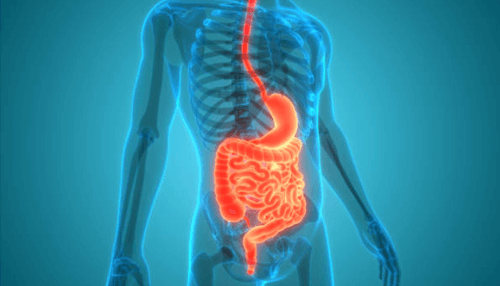According to nearly all physicians, several things influence energy levels in the body. Although we can control some of them, others are entirely out of our hands. Before delving into what we can and cannot control, let’s take a moment to learn more about how the body makes energy in the first place. In essence, the body turns the food we eat into energy.
The primary nutrients that the body uses for this purpose include carbohydrates, proteins, and fats. However, carbohydrates are the most important of these three energy sources.
After we consume nutrient-dense foods, the process by which the body converts those nutrients into energy is entirely autonomic. We only become actively involved in this process again when we expel energy.
What Does the Digestive Process Have to Do With Energy?
After we consume food, the next step is digesting it. It is here that the body embarks on the first step toward converting nutrients into an energy source. For reference, the digestive process entails chewing and swallowing food, which travels down the esophagus. After it travels through the esophagus, the partially digested food gets combined with acids and enzymes in the stomach. Next, the stomach begins digesting the remainder of that partially digested food, namely carbohydrates, and turning it into a type of sugar known as glucose.
Even after the body has converted carbs into glucose, there are still a few more steps to go in rounding out the digestive process. The glucose made by the stomach and, to some extent, the small intestines is released into the bloodstream. Once in the bloodstream, glucose combines with the hormone insulin, making it immediately available for energy.
How We Lose, Gain, and Restore Energy Throughout the Day
Now that we have a basic understanding of how the body produces energy, let’s take a closer look at losing, gaining, and restoring it. With the help of insulin, glucose travels from the bloodstream to various cells in the body. And those cells play a critical role in allowing us to do the things that require energy, such as working, playing sports, walking, talking, and even just breathing. Ironically, these are also some of the things that also burn energy. Fortunately, restoring depleted energy is not too difficult. According to most endocrinologists and neurologists, the following are all-natural ways to boost low energy levels in the body:
- Eat nutrient-rich food, preferably with a low glycemic index
- Getting enough sleep
- Exercising
- Limiting alcohol consumption
These same recommendations can also help individuals replenish lost energy. Not only that, they make it possible to gain even more of that valuable energy than their bodies could ever produce naturally.
Synthetic Ways to Boost Low Energy Levels in the Body
Although making positive lifestyle changes can lead to more energy for most people, others might not be so fortunate. In such cases, alternative methods might be worth considering, especially for individuals aged 40 and over. After all, it is around this time when hormonal imbalances start to present themselves, one of which is low human growth hormone (HGH) levels.
In our 20s, the pituitary gland produces about 500 mg of human growth hormone per day. By comparison, production falls to around 200 mg per day in our 40s. One of the side effects of having low growth hormone levels or a full-on deficiency is insomnia. And the more sleep-deprived someone becomes, the less energy they have to get through day-to-day life. One way to resolve low human growth hormone levels, insomnia, and low energy all at the same time is by undergoing HGH therapy. Among all HGH benefits most common are increased energy and motivation levels, improved stamina, libido, and better appearance.
Growth Hormone Replacement Therapy: A Synthetic Way to Increase Energy Levels When You’re Over 40
Because low energy goes hand-in-hand with low growth hormone levels, physicians often prescribe HGH therapy as a means of resolving both issues. This is especially the case when individuals don’t see any improvements in their growth hormone levels after making positive lifestyle changes. It is worth noting that an individual must be formally diagnosed with a growth hormone deficiency, which requires undergoing blood and other diagnostic tests, and possess a valid prescription from their physician to start HGH therapy. Some of these injectable, FDA-approved medications that are part and parcel of such therapy include
- Sogroya
- Humatrope
- Saizen
- Genotropin
Side Effects and HGH Therapy: What You Should Know Before Starting Your Treatment
Although effective for most people, HGH therapy which comprises growth hormone replacement drugs can trigger several side effects. Some of the more notable ones include the following:
- Carpal tunnel syndrome
- Increased insulin resistance
- Development of type 2 diabetes
- Edema
- Joint and muscle pain
- Gynecomastia in men
- An increased risk of developing certain cancers
Supplements for Better Sleep and More Energy
For those not quite ready for injectable hormone replacement therapy, you will be happy to know that there are other synthetic ways to achieve better sleep and more energy, one of which is taking dietary supplements. One of the best ones is the sleep aid melatonin. Because the pituitary gland secretes most of the HGH we need while we are sleeping, it stands to reason that the more sleep we get, the more HGH gets secreted and the more energy we’ll have as a result. That said, Melatonin can help in both of these regards. Aside from sleep aids, other supplements that can boost low energy levels in the body include
- Vitamin D
- B12 supplements
- Gamma-aminobutyric acid (GABA)
- Ashwagandha
- Creatine
Bottom Line
In summary, multiple things contribute to creating and replenishing energy levels in the body. So if you’re feeling drained, you’re encouraged to try some of the tips detailed in this article. It would also be a good idea to schedule a health screening with a licensed physician that includes diagnostic testing to determine whether or not low growth hormone levels or another hormonal imbalance is a culprit in your low energy.




